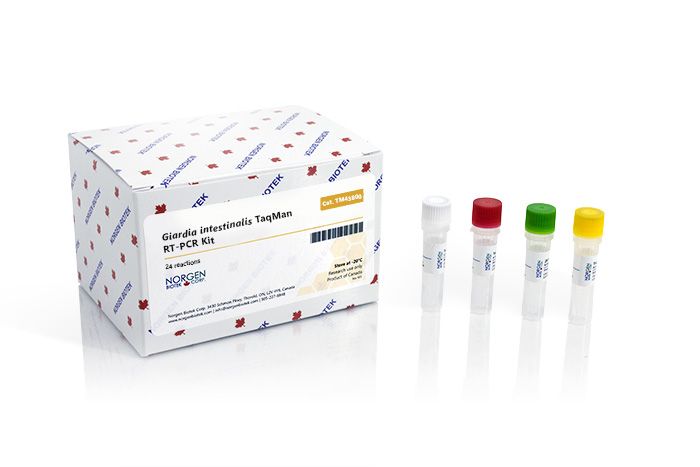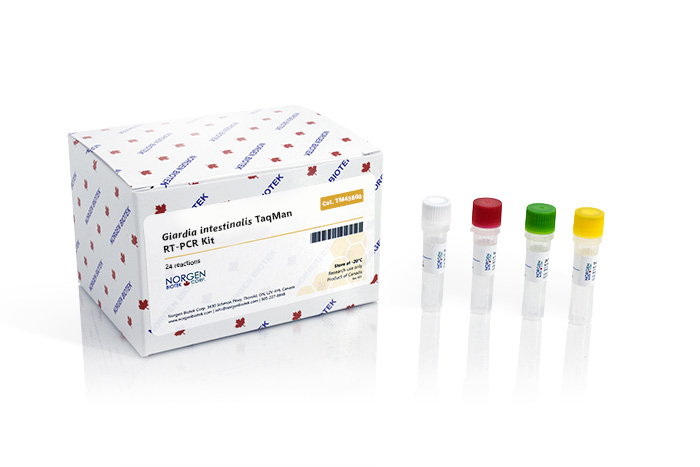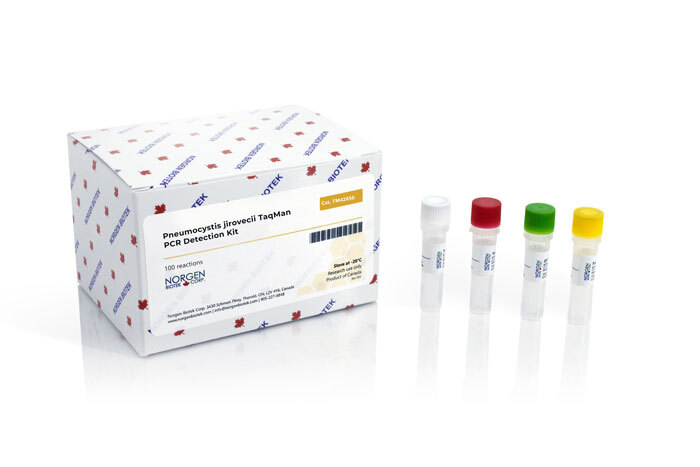Giardia intestinalis TaqMan RT-PCR Detection Kits

For research use only and NOT intended for in vitro diagnostics.
Giardia intestinalis TaqMan RT-PCR Detection Kits
Register today to receive an exclusive 15% off* on your first order.
Features and Benefits
- Detection kits for Giardia intestinalis
- CE-IVD marked version available for in vitro diagnostic use
- Available in TaqMan format for analysis.
Giardiasis is a disease of the small bowel caused by the protozoan parasite Giardia intestinalis (syn.duodenalis or lamblia). Giardia is one of the most common intestinal parasites in the world, and occurs at very high prevalence rates in places with poor water sanitation. Individuals become infected through ingesting or coming into contact with contaminated water, food or soil. It can also be spread through the faecal-oral route due to poor hygiene practices, which makes it common in day-care centers. G. intestinalis lives inside the intestines of infected humans or other animals including cats, dogs, birds, cows, beaver and deer. Symptoms of infection include diarrhea, malaise, excessive gas, bloating, nausea, diminished interest in food, possible vomiting and weight loss.
There are 2 kits available for the detection of Giardia intestinalis:
Click to expand options
- Ready to use format, including Master Mix for the target and PCR control to monitor for PCR inhibition and validate the quality
- Specific Primer and Probe mix for the pathogen/virus/viroid of interest
- Primer and Probe mix
- Positive and negative control to confirm the integrity of the kit reagents
- Specific Primer/Probe mix and Positive Control for the pathogen/virus/viroid of interest
- Nuclease-free water
- Can be used together with Norgen’s RT-PCR Master Mix (#28113) or customer supplied master mix
Details
Supporting Data
TaqMan PCR Kit - Figure 1. Example of TaqMan One-step RT-PCR Positive result. Both PCR signals above the baseline from FAM and HEX channel indicate the successful PCR.
TaqMan PCR Kit - Figure 2. Example of TaqMan One-step RT-PCR Negative result. No target RNA was detected in FAM channel but amplification signal from HEX indicates the successful PCR.
TaqMan PCR Kit - Figure 3. Example of TaqMan one-step RT-PCR inhibition result. No signal from both FAM and HEX channel was detected. It is suggested to repeat the sample preparation using recommended kit for RNA purification.
Storage Conditions and Product Stability
All kit components can be stored for 1 year after the date of production without showing any reduction in performance.
All kit components should be stored at -20°C upon arrival. Repeated thawing and freezing (> 2 x) of the Master Mix and Positive Control should be avoided, as this may affect the performance of the assay. If the reagents are to be used only intermittently, they should be frozen in aliquots.
| Component | Cat. TM43850 (100 preps) | Cat. TM43810 (100 preps) |
|---|---|---|
| MDx TaqMan 2X PCR Master Mix | 2 x 700 μL | - |
| Giardia intestinalis Primer & Probe Mix | 280 μL | 280 μL |
| Giardia intestinalis Positive Control | 150 μL | 150 μL |
| Nuclease-Free Water (Negative Control) | 1.25 mL | 1.25 mL |
| Product Insert | 1 | 1 |


